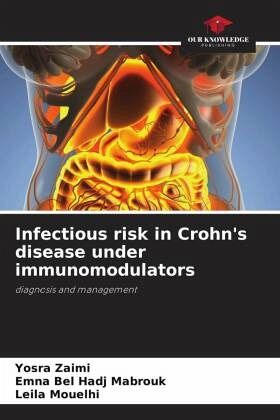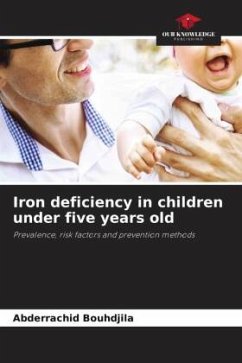
Infectious risk in Crohn's disease under immunomodulators
diagnosis and management
Versandkostenfrei!
Versandfertig in 6-10 Tagen
40,99 €
inkl. MwSt.

PAYBACK Punkte
20 °P sammeln!
Immunomodulators have revolutionized the management of chronic inflammatory bowel disease. Nevertheless, they are associated with an increased risk of opportunistic infections (OIs). The aim of our study was to investigate OIs in Crohn's disease on immunomodulators and to identify associated factors. 77 were included with a M/F sex ratio of 0.75 and a mean age of 45.6 years. A pre-immunomodulator workup was performed in all patients. Antituberculosis chemoprophylaxis was prescribed in 18% of patients. Viral serologies B and C were positive in 8 and 4% of cases. OI occurred in 42 patients with ...
Immunomodulators have revolutionized the management of chronic inflammatory bowel disease. Nevertheless, they are associated with an increased risk of opportunistic infections (OIs). The aim of our study was to investigate OIs in Crohn's disease on immunomodulators and to identify associated factors. 77 were included with a M/F sex ratio of 0.75 and a mean age of 45.6 years. A pre-immunomodulator workup was performed in all patients. Antituberculosis chemoprophylaxis was prescribed in 18% of patients. Viral serologies B and C were positive in 8 and 4% of cases. OI occurred in 42 patients with a mean time between treatment with immunomodulators and the occurrence of infection of 3.3 years. OIs were ubiquitous. The infection was bacterial in 71% of cases with a predominance of E.Coli, parasitic in 12% of cases, fungal in 12% of cases and viral in 5% of patients. In a multivariate study, the combination of azathioprine and corticosteroids was the independent predictive factor for the occurrence of OI (p<0.001).












